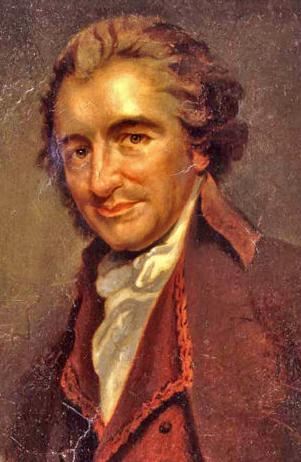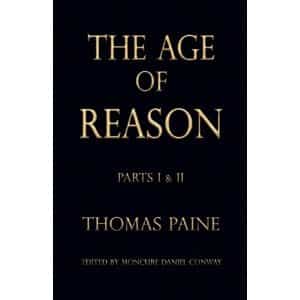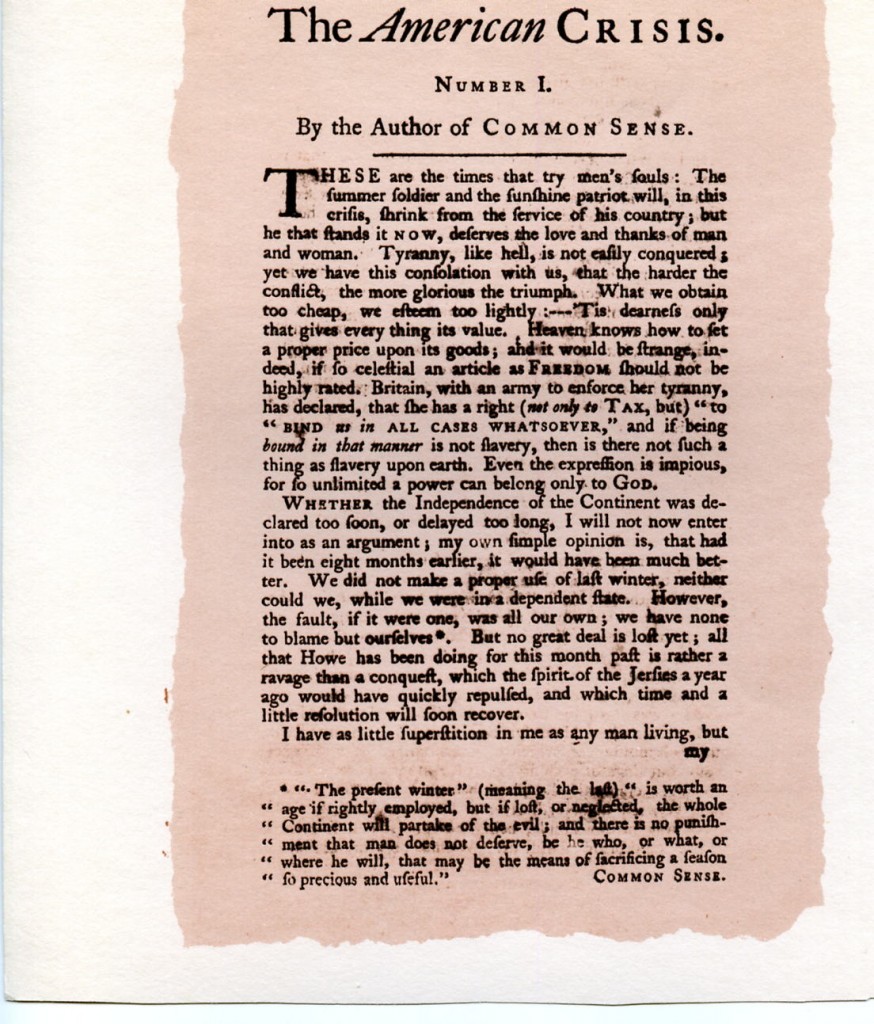Thomas Paine, often called the “Godfather of America” was an eighteenth century writer who used propaganda and persuasion techniques to motivate Americans in the fight for freedom from Britain.
In one of several editions of his pamphlets titled The Crisis, Paine used several propaganda and persuasion techniques including over generalization, either/or fallacy, bandwagon appeal, parallelism, analogy, repetition, anecdote, and loaded language.
During the winter of 1776, American soldiers fighting in the Revolutionary War under the command of George Washington had little food, insufficient shelter, and many were deserting.
The reading of The Crisis to these troops had a profound effect upon their morale which lead to a victory at Trenton.
George Washington’s famous crossing of the Delaware River ultimately became a turning point in the war. As noted by John Keane in his book, Tom Paine: a Political Life, “Tom Paine strikes our times like a trumpet blast from a distant world.”
Thomas Paine used propaganda methods to induce a desire for freedom in the reader in one of his works, The Crisis. One type of propaganda used was over generalization.
His use of broad generalities was demonstrated when he concluded, “Not a man lives on the continent, but fully believes that a separation must sometime or other finally take place…” A second type of propaganda used was either/or fallacy.
Paine had the sentiment that a man either fought for freedom or would always be known as a coward when he stated, “The heart that feels not now is dead; the blood of his children will curse his cowardice who shrinks back at a time when a little might have saved the whole, and made them happy.”
The third and final use of propaganda in Paine’s The Crisis was the bandwagon appeal. To truly be an admired American, Tom thought that one had to support and fight for freedom for all. This was exemplified when he said, “The summer soldier and the sunshine patriot will, in this crisis, shrink from the service of their country, but he that stands it now deserves the love and thanks of man and woman.”
Tom Paine also used many forms of persuasion in his essays contained in The Crisis.
The first type of persuasive style used was parallelism. He noted the similarities between England and a house burglar when he stated, “…but if a thief breaks into my house, burns and destroys my property, and kills or threatens me, or those that are in it, and to ‘bind me in all cases whatsoever’ to his absolute will, am I to suffer it?”
The second form of persuasion used was the analogy. Thomas Paine concluded that the King of England was an impious criminal when he declared, “I cannot see on what grounds the King of Britain can look up to heaven for help against us: a common murderer, a highwayman, or a housebreaker has as good a pretense as he…” The third example of persuasion used was repetition.
He continually claimed God’s assistance for the American cause when he expressed, “…God almighty will not give up a people to military destruction, or leave the unsupported to perish…” and “Neither have I so much of the infidel in me as to suppose that he has relinquished the government of the world, and given us up to the care of devils.” The fourth instance of persuasion Paine utilized was loaded language.
Emotional excitement was certainly provoked when he declared, “Britain, with an army to enforce her tyranny, had declared that she has a right not only to tax, but ‘to bind us in all cases whatsoever’; and if being bound in that manner is not slavery, then is there not such a thing as slavery upon earth.”
The fifth and final example of persuasion contained in The Crisis was the anecdote. Paine told the story of a common man who wanted to see freedom in his lifetime.
“A noted one, who kept a tavern at Amboy, was standing at his door, with as pretty a child in his hand, about eight or nine years old, as I ever saw, and after speaking his mind as freely as he thought was prudent, finished with this unfatherly expression, ‘Well! give me peace in my day.'”



